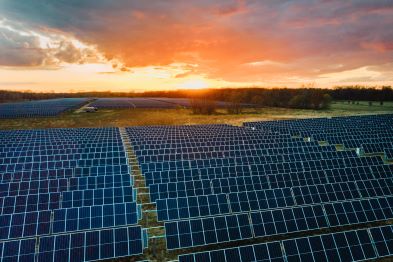
MEDC and MIT Technology Review Insights Show Climate Considerations Are a Top Factor in Business Decisions
LANSING, Mich.–(BUSINESS WIRE)–Climate risk is at our front door, with 99% of the U.S. population having been subject to at least one extreme-weather alert since May 2024. This isn’t lost on business executives, who are aligned about the economic effects of climate change. A national survey of 300 senior U.S. executives conducted by MIT Technology Review Insights, in conjunction with the Michigan Economic Development Corporation (MEDC), found every respondent agreeing that climate change is either harming the economy today or will in the future.
When asked about their organizations’ experiences, all respondents identified ways their businesses have been affected by climate change. The majority have suffered business disruption (61%) and damage to physical infrastructure (55%). Many reported rising operational costs (64%) and insurance premiums (63%). A majority of respondents (75%) reported their organization has considered relocating due to climate risk. Some (24%)have already relocated physical infrastructure to prepare for climate change impacts.
“Climate change is causing more extreme weather events and raising risks for business right now,” says Kara Cook, the State of Michigan’s Chief Climate and Energy Strategist. “Here in Michigan, we’re facing climate change head-on with investments to build up our water infrastructure, produce more clean, reliable energy, enhance our grid resilience and more. As national leaders in climate action, we continually find new ways to make our businesses and communities more prepared for climate events, while growing our clean energy economy.”
When evaluating potential new business sites, 71% of executives highlight the availability of climate-planning resources as top criteria. Examples include Michigan development programs that show businesses how nearby wetlands can help prevent flooding or how microgrids can help build power resilience.
Jurisdictions that have climate adaptation plans, such as Michigan’s Healthy Climate Plan, are more likely to have resources for businesses, including those scouting future sites.
Nearly two-thirds (64%) of respondents cited the importance of a location’s access to critical natural resources, such as fresh water.
No parts of the U.S. are immune to the effects of climate change. However, some areas are less exposed to risk than others. Nearly half of all respondents (47%) selected the Midwest as the least exposed region of the country. At the other end of the spectrum is the West (7% chose as least exposed), where extreme heat, drought, and wildfires have been serious challenges.
“Michigan is strategically positioned to lead the fight against the climate crisis. Not only are we a climate haven—where extreme weather is less likely to impact our people and businesses—we’re also establishing the state as a leader in climate innovation and purpose-driven work,” said Hilary Doe, the State of Michigan’s Chief Growth Officer. “Our robust supply chain, access to natural resources, leading research universities, and incredible talent all make Michigan an ideal place for businesses who want to be on the forefront of climate preparedness and solutions. Pair that with one of the most robust climate plans in the nation, and you’ll see why Michigan is number one for energy sector job growth, EV and hydrogen investments and IRA-backed clean energy projects. For talent and businesses on the forefront of climate preparedness, there’s no better place to be than Michigan.”
See here to read the full MIT Technology Review Insights report, titled “Addressing climate change impacts.”
About Michigan Economic Development Corporation (MEDC)
The Michigan Economic Development Corporation is the state’s marketing arm and lead advocate for business development, job awareness and community development with the focus on growing Michigan’s economy. For more information on the MEDC and our initiatives, visit www.MichiganBusiness.org.
Contacts
Stefan Cross



